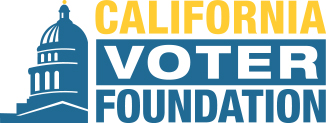Excerpt:
As state election officials watch an angry President Trump and other partisan leaders slam what they claim are slow vote counts, political influence and delayed results in Florida, Georgia and Arizona elections, they have one thought: That could be California.
Days after Tuesday’s election, a handful of closely watched congressional races in California still haven’t been decided and a final count is days and possibly weeks away.
----
The first problem is a simple one: California is a really big state with a lot of people who vote.
By the time all the state’s precincts had reported on election night, about 7.4 million votes had been counted. But by Friday, there were still more than 4.8 million late-arriving and provisional ballots to be tallied.
Those 12.2 million votes are more than the total population of all but the nation’s six largest states. The 4.8 million ballots left to be counted surpass the number of people who live in Louisiana (population: 4.6 million), the 25th-largest state in the union.
Counting that many ballots takes time, and there aren’t many ways to shorten the process, said Sam Mahood, a spokesman for Padilla.
“There are a massive number of ballots, and we have 58 very different counties, each with its own way of counting and its own level of resources,” he said.
-----
While more than two-thirds of the votes in the June primary election came from mail ballots, there are voters who still like the polling place experience, said Kim Alexander of the nonpartisan California Voter Foundation, which works to improve the state’s election process.
“There are people who don’t trust the post office and want the satisfaction of physically dropping their vote off,” she said. “And there are a lot of people who like the election day voting experience, and even voters who want to get that ‘I Voted’ sticker.”
But the biggest reason for California’s long count is a matter of priorities, Mahood said. In tech talk, those delays aren’t a bug, they’re a feature.
“State election law is written to maximize voters’ ability to vote and to have those votes counted,” he said. “It’s better to make sure of getting everyone’s vote counted than to speed things up.”
-----
“There are a lot of fail-safes in our election process that protect voters,” said Alexander of the voter foundation. “We could certify an election in the week and disenfranchise thousands of voters, and that’s what a lot of states do.”
California gets ridiculed by pundits and others for the time it can take to decide a close election and a certification process that doesn’t provide the final election numbers until early in December, and that’s just not fair, Mitchell said.
“For too many people, politics is a sport and they just want to know who the winner is,” he said. “But that shouldn’t supersede the right of a voter to cast a vote and get it counted.”
The complaints about the process don’t come from everyday Californians, Mahood said.
“The vast majority of voters in California are happy there are safeguards,” he said. “Most of the complaints are Twitter chatter from political insiders who want to know who won.” (full story)

